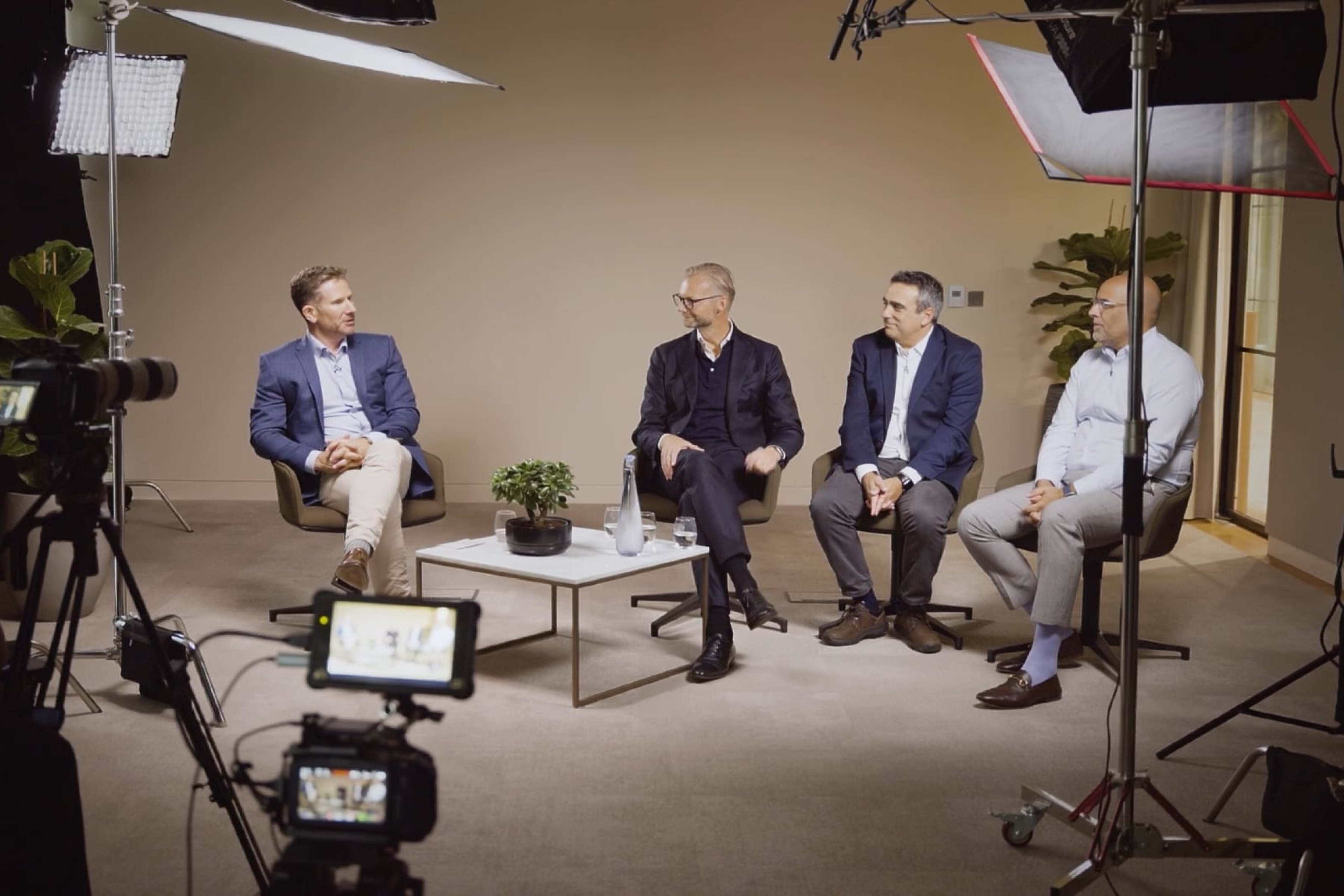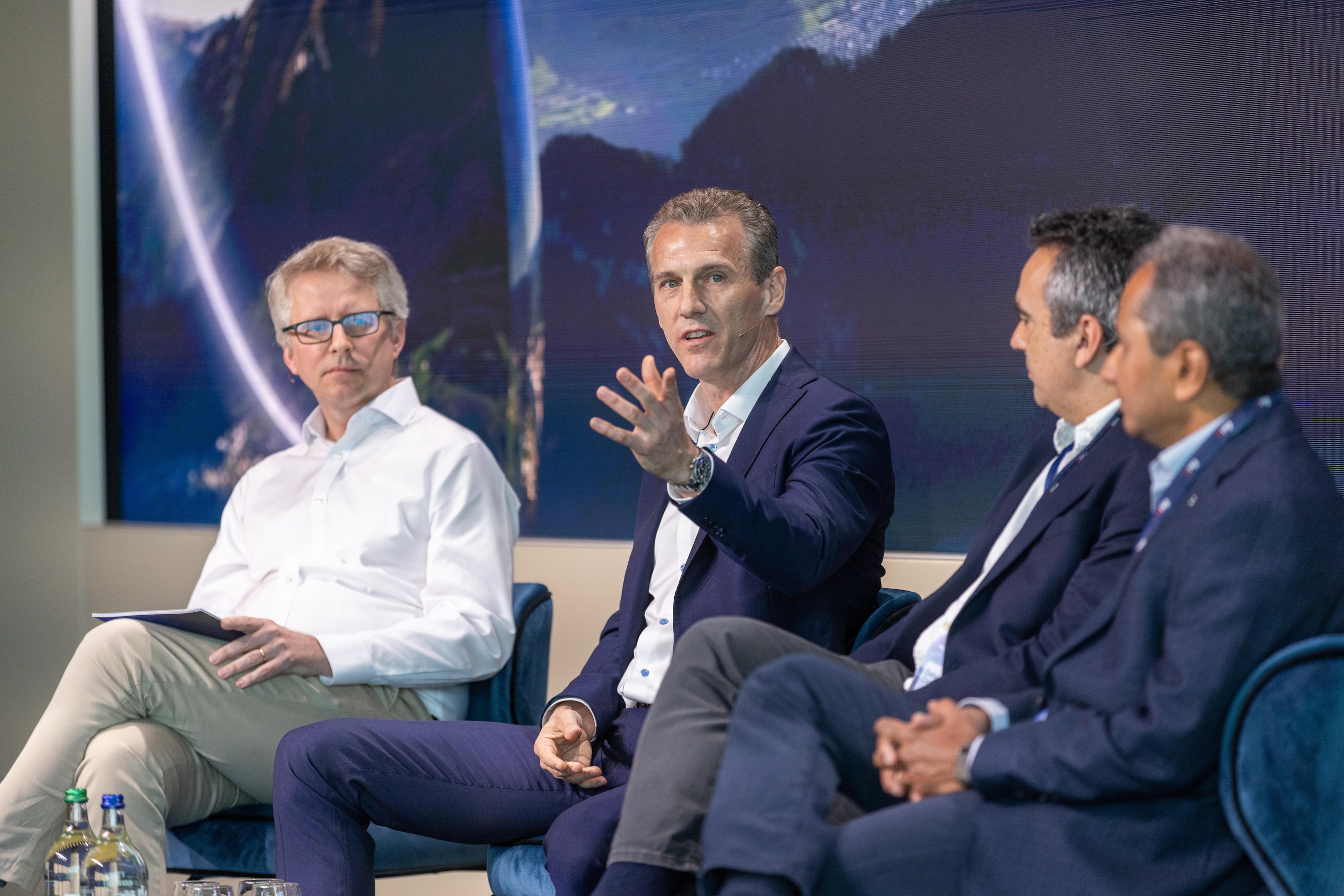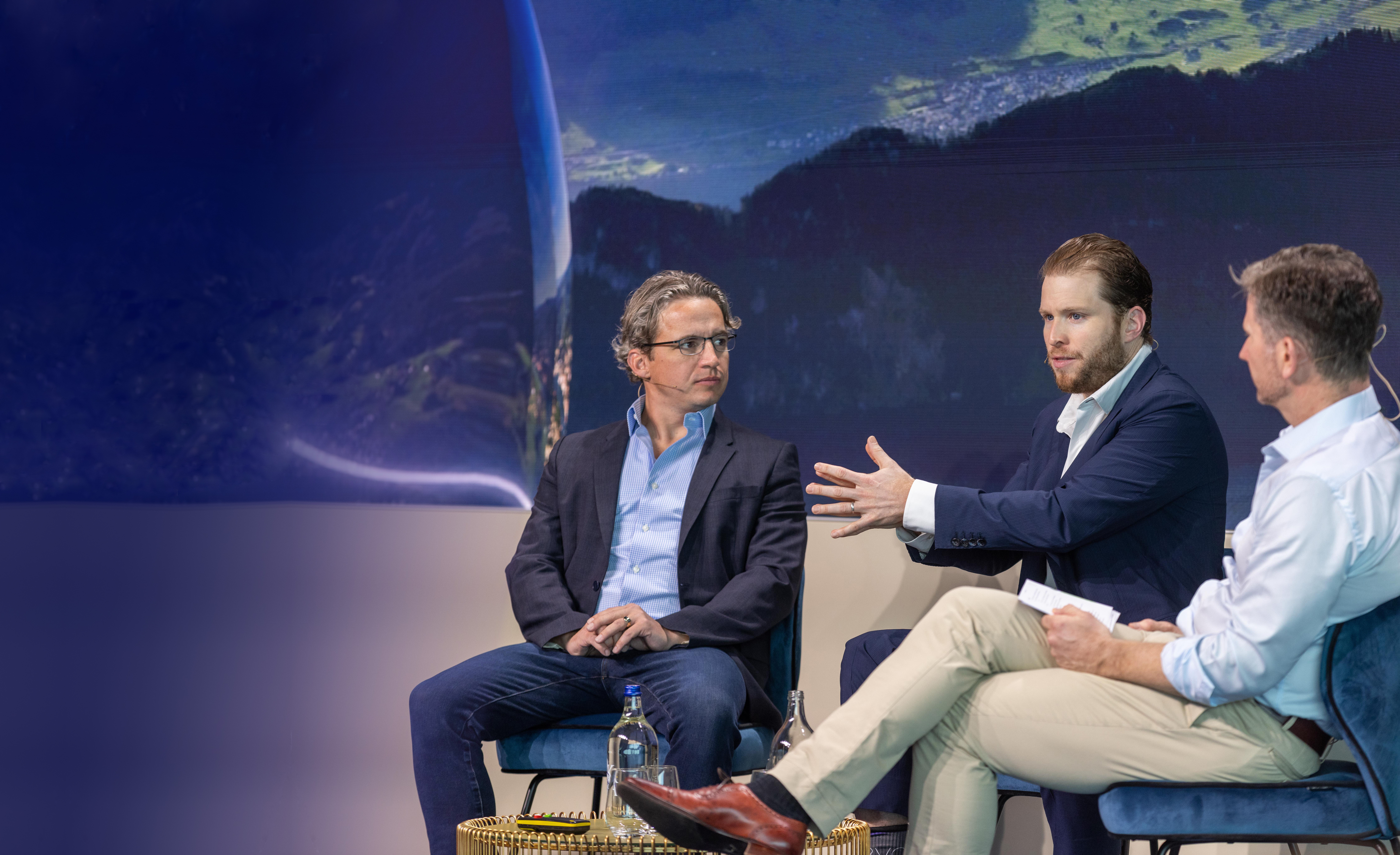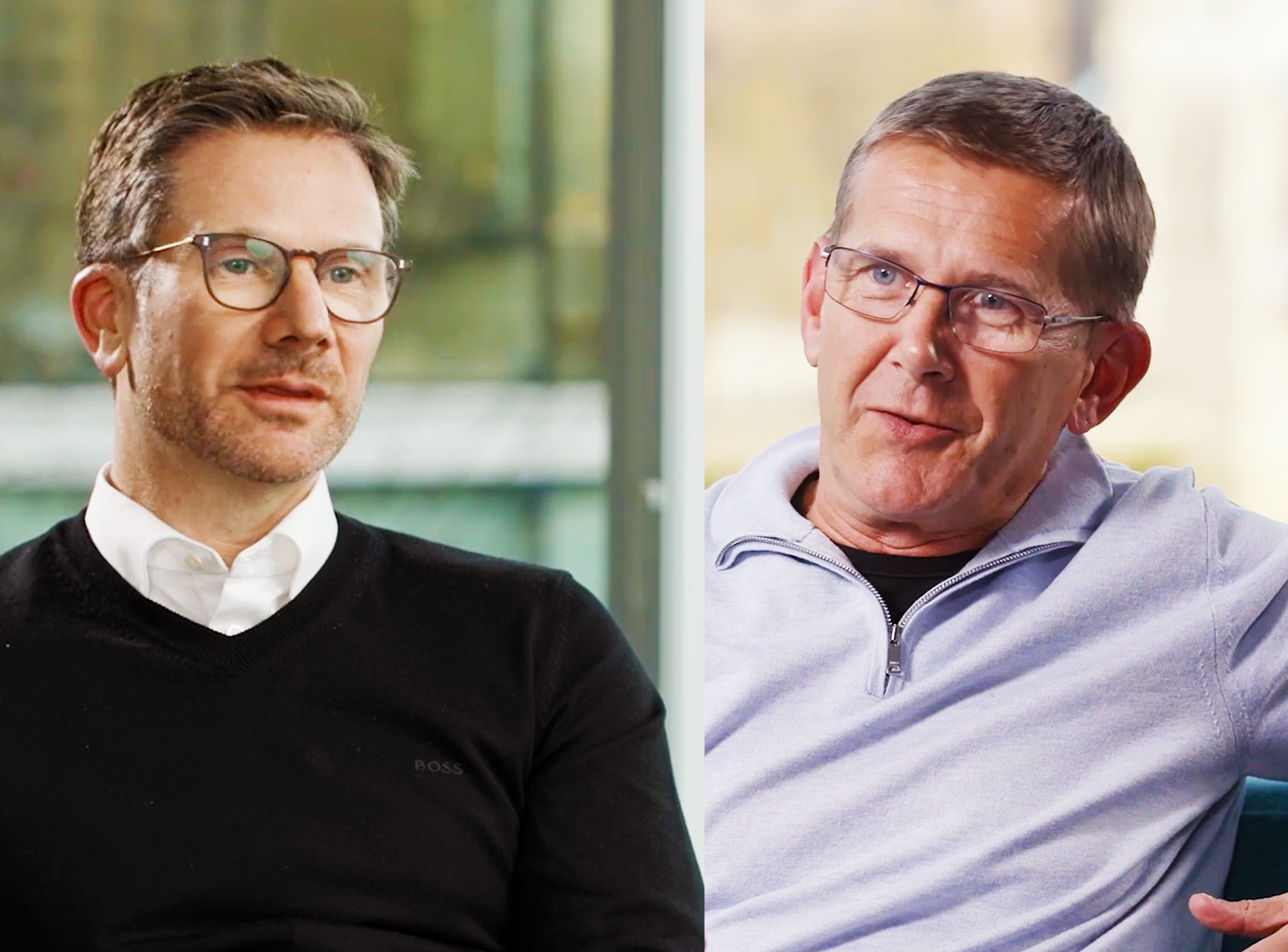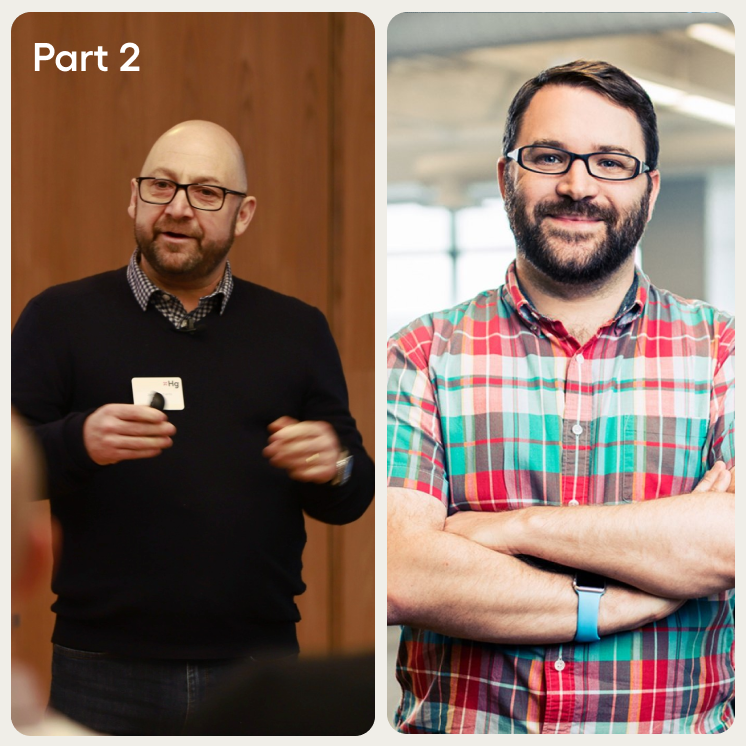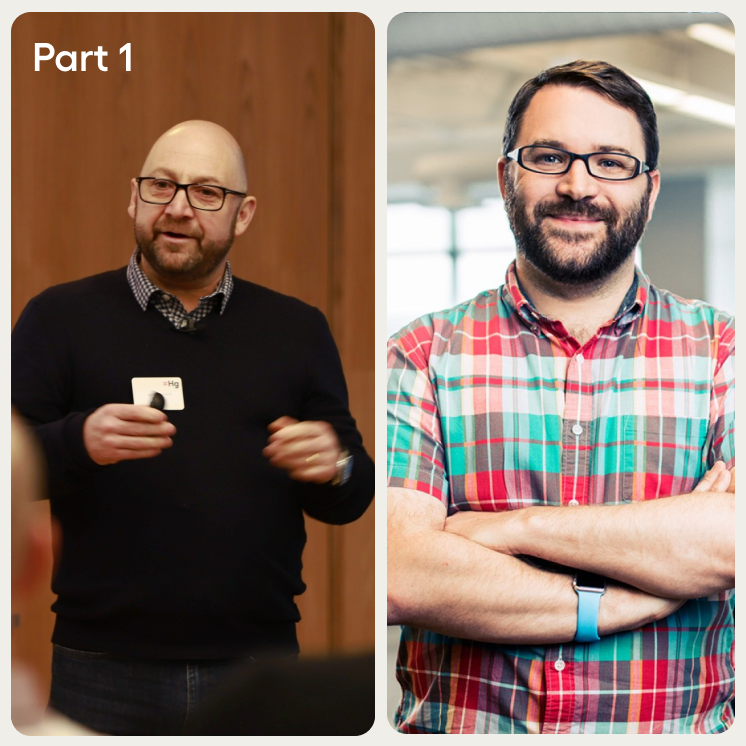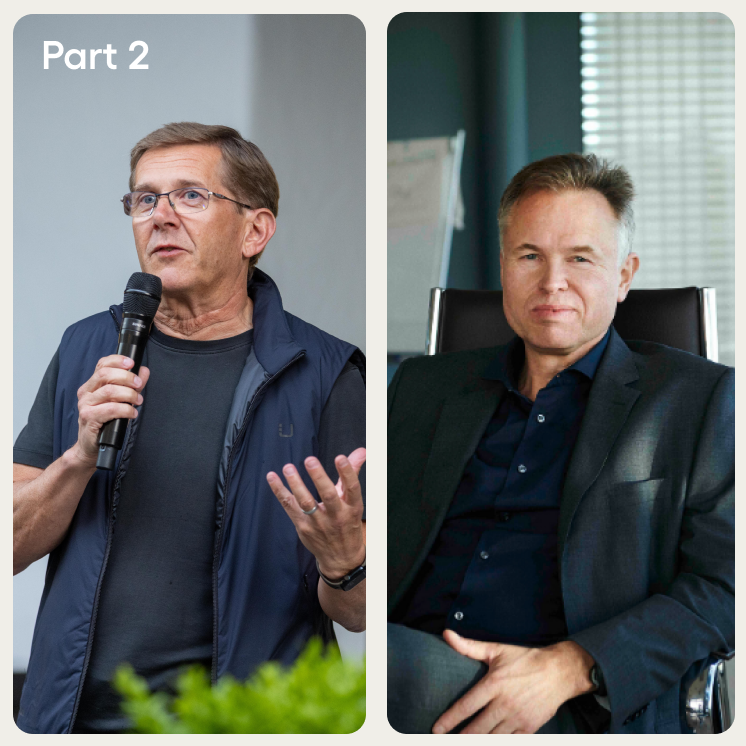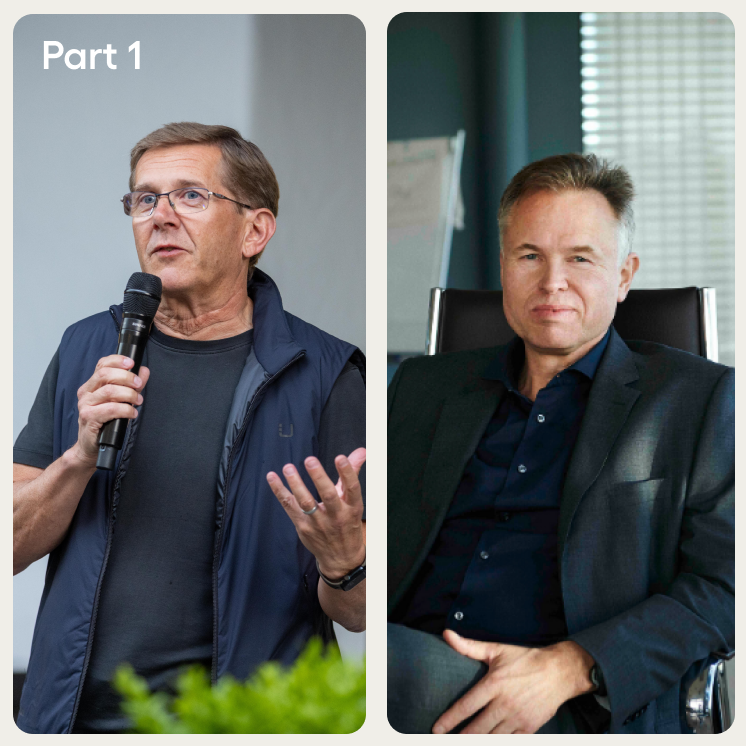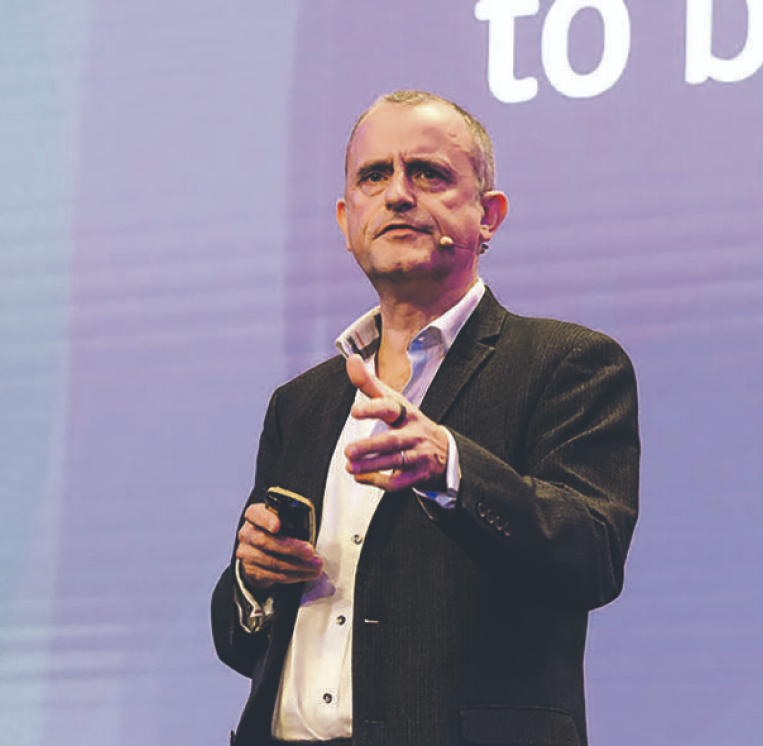Orbit Podcast
Orbit 33
Harnessing a new superpower
After a year when the sudden leap forward of Gen AI and LLMs took almost everyone by surprise, it’s a good time to ignore the hype, take a step back and look at what we have.
Guido Appenzeller is a special advisor to a16z, a former CTO at Intel and VMware and a leading voice in the current wave of software and technology. In part two of our conversation with Guido, we look at the ways the new generation of AI applications will effect the business world. How do you best capture the value of this wave, how to prepare for it and how to enable your teams to experiment from the bottom up.
Listen on:
Episode Transcript
Chris Kindt
So Guido, certainly in our Hg portfolio, we're seeing a lot of companies experiment with different use cases, trying different ways of getting impact and value impact from this new tool, from this new technology. Where are you seeing some of the biggest gains and wins in a typical kind of software company?
Guido Appenzeller
Yeah, if I have to roughly bucket it into three areas, there's the internal, your own productivity increases. So this is not about making your product better, it's just getting your folks more productive. And then I think we talked about that before, this short term and more midterm impact on changing your product. When it comes to productivity, look, the first thing with software is use coding assistance. GitHub Copilot is amazing. There's a gaggle of start-ups that are all trying to catch up or surpass a Copilot, and some of them at this point are possibly better than Copilot. There's some really amazing technology out there from.
What we've seen using this coding assistant can give you anywhere from a 30% to a hundred percent gain in develop developer productivity. That's massive. For a couple hundred bucks a year, I can make somebody who gets, I don't know, 50 or a hundred thousand dollars a year in some cases more make them 30K more productive. That's not a particularly hard math problem to work out whether that's worth it or not. So I think this is a big enough advantage that it's mandatory. If you are 30% less productive than your competitor, you have a strategic issue that's no longer about getting a little bit more or less profitable. It's like you have to use these things and they will only get better over time.
Chris Kindt
And I guess just building on that kind of like a follow-up question that we certainly hear is that nervousness around yes, making team members undoubtedly much more productive, but how does a company really capture the value of that and turn that into kind of value impact and see that crystallize into value creation?
Guido Appenzeller
Yeah, I think the initial one is just by having more developer productivity, does it allow you to reduce teams? Maybe, maybe not, but you're probably in a growth phase. Most software is still growing, so you probably may be able to slow down hiring a little bit or just bring products to market more quickly. It's very hard to predict... If you reduce the marginal cost of a good, how consumption reacts depends on your elasticity curve. In many cases actually it can mean that the overall spend becomes larger. So I think there's a very realistic chance that we actually see even more software developers because now there's so much more [inaudible 00:34:43] suddenly we can address whole new use cases that previously were just not effective.
Chris Kindt
One interesting build on that is what we are seeing in our portfolio companies is just the level of engagement and employee engagement and retention that we are seeing from our developers step up. So even as a, you might call it a second order effect, but that in itself seems to have tangible and meaningful economic impact in our businesses.
Guido Appenzeller
Absolutely, yeah. The real nice thing about these coding assistance is they make the boring work more effective and the interesting work stays about the same. What else could you ask for?
Chris Kindt
How should a CEO of a software company think about engaging and harnessing the potential of this tool and technology? What's the right mindset or approach a company needs to be adopting here?
Guido Appenzeller
That's a great question. I think one thing we've seen in previously large tech revolutions of this type is that the way how these new technologies get adopted in enterprises often happens in a very bottoms up way. So for example, think back to the days of cloud. It was definitely not the CIO who said we need to roll out cloud internally. In the early days, it was more some business unit which was really angry at the CIO that it took so long to provision a server. They went to Amazon because they could get it immediately and they started deploying workloads. And when the CIO found out that project was too successful and you couldn't shut it down anymore, literally I talked to one CIO back in those days who was basically encouraging the business units digital runaround of the CIO just story with hope to from his organization.
And I think we have a little bit the same effect here where AI often gets adopted through individual developers in the business units. And that's a good thing. I think if you're an enterprise, you want that because mandating top down what to do in a field that's evolving this quickly, it's just incredibly hard. What I would do if I was an executive is basically empower my employees and remove barriers for them to adopt AI. And barriers very often are legal, they're regulatory, they're IT security. So making sure that those things don't stifle these products, making sure that developers have access to them and encourage them, maybe give them test budget to try out some things. And using these models at small scale is so cheap, it's very easy to do.
Chris Kindt
If I can build on-
Guido Appenzeller
Yeah, please.
Chris Kindt
... just one point there, I know it's kind of point that you raised last night, which is Andreessen Horowitz, there are banks that have very swiftly overcome regulatory and cyber and other security concerns. It was quite telling that yes, this is a new field, there is some uncertainty, but if highly regulated financial institutions can give broad access to their employee base to this new tool, then that certainly makes me optimistic that other companies can rise to that challenge in just the same way.
Guido Appenzeller
I think it's exactly right. Andreessen is regulated as a banker. Morgan Stanley is a great case study. They were one of the first adapters of OpenAI and using the financial industry, if companies like them can pull this off, anybody else should be able to as well because they're some of the most heavily regulated entities that are out there. In many cases, I think the regulation is just an argument for procrastination, because it's fear of the unknown. If I go back 15 years, I think every CIO I talked to back then told me from a bank or for most companies frankly told me they could never put a workload in the cloud for security and compliance reasons, and they would never trust Amazon. Today, they're all there. So I think in many cases just the fear of change, fear of the unknown that keeps people... So basically pushing through that and enabling the individual developers in your organization is probably one of the most powerful things you can do.
Chris Kindt
And the trick that we are seeing companies play well is to your point, enable that bottom up adoption consumption, but then top down, stay close enough and really see where there's hotspots of usage and consumption and impact are, and then using that kind of top-down focus to then scale up and roll out.
Guido Appenzeller
That's exactly right.
Chris Kindt
And broaden access to those kind of bottom up experiment generated use cases to make sure that then the full potential of that use case and that technology gets spread across the business.
Guido Appenzeller
No, I think it's exactly right. You want to have the distributed innovation and then once you have projects that work, pick the winners and start rolling them out across your organization and start to standardize on them. And that way you get really great software architecture.
Chris Kindt
There was an example of stats, I don't know whether I can quite mention the publicly traded software company, but there was a scale software business that I think you said that the CTO had literally a thousand-
Guido Appenzeller
Over a thousand, yes.
Chris Kindt
... Over a thousand AI experiments on the go across the full organization. It's a large scale organization-
Guido Appenzeller
That's right, a very large software company. Blown away by away by the number- [inaudible 00:39:54]
Chris Kindt
... but it still is a very big number. Kind brings to life your point around, look, this is all about encouraging and fostering experimentation on the ground so that you really have the users who can see most benefit, engage with it and learning from their experiences.
Guido Appenzeller
I think it's exactly the right way to look at this. Today, if you take an iPhone and take a photo with an iPhone, you have probably 10 to 20 models running on your iPhone. That'll do everything from detecting faces and adjusting lighting, adjusting exposure, many of these things. And I think this is the right way to think about that tomorrow, which part of a software business use a database? Well, all of them do. Which of them will use a model? All of them will. Which one? That gets a lot more complicated and there's many things you can do well or badly, but this is a new fundamental building block which will be ubiquitous and therefore you need to really enable everybody to adopt this across the organization.
Chris Kindt
So we're kind of talking about rightly, understandably, talking about look, just getting a grip of this technology, experimenting with it, pushing out quick wins, getting some reps going. I guess the question is there in parallel, are there some sensible foundational steps that companies should be putting on their homework or their training schedule as well in addition to that, that will just more broadly make them more ready to absorb and adopt more of these AI use cases going forwards?
Guido Appenzeller
Yeah, I think one thing you can do is encourage use for just outside of software and just for productivity in the organization. If you can have something like a ChatGPT to make that available to employees, it could be an internal Llama deployment or whatever it is where they say, "Look, whenever you write text, here's a tool you can now use that's nicely integrated. If you have documents you want to analyse, use this tool." In many cases, I think the more people can experience the power of these models and the more they understand the texture and the more they understand what works, but also what doesn't work, that then allows them to transfer that knowledge and really build it into the products that are going to drive the business.
Chris Kindt
And maybe in a builder for me, from the product proposition side onto internal operations, we have some CEOs talk passionately and eloquently about how they think about the organization also in terms of processes, data and systems, and that if they invest in those business foundations, any kind of changes and innovations you can spark and spin up through AI. If you then have that business infrastructure in place, you really accelerate and magnify the rollout. So if you have, they will talk about the quality of say, the CRM processes and systems that they have in place, and if they are really up to scratch, then that allows a much sharper impact of any of the AI driven innovations you might have for that sales teams in that place because you have the harness and the change infrastructure in place to really then capture and scale the impact that we see.
And maybe this deserves a separate question, but just to maybe thinking out loud, express the sentiment. The interesting contrast are those companies that operate more informally. That don't have well-governed, more systematic processes, have poor compliance or limited usage of systems. We hear how they then struggle to then really roll out and scale some of those AI use cases that we have. So I don't know if that makes sense as a point, but maybe that's just a quick topic to touch on, because that AI readiness as we call it, that with a few of our companies is a real challenge that they have to overcome.
Guido Appenzeller
That makes a lot of sense. The general agility you have roll out new software and for AI, there's probably particular importance to what extent. For example, you've normalized your data, you have APIs in place to access all of it versus it being more siloed and specific applications. That can make a huge difference. Now the good news is AI works incredibly well on even unstructured data. So I think there are some cases where honestly AI can normalize some of that where before, unless data was nicely structured, I couldn't use it. Now it's like, we have all this data and random PDF documents, I can still use it. So there's some advantages there. But I think honestly the bigger point is probably the other half what you said, the level of agility you have, how quickly your teams move, how good are they in absorbing new technologies? That makes a huge difference for everything, but particularly in a situation like this where you have a new technology.
Chris Kindt
So this is really a rallying cry towards... Well, not just experimentation, but then making sure that the business remains agile enough to then absorb that experimentation and then roll that out at scale-
Guido Appenzeller
So very true.
Chris Kindt
... that's a new kind of change muscle or new kind of business muscle that leaders need to really embrace to make sure that they make the most of this AI technology.
Guido Appenzeller
Very much so, very much. And look, any systemic change of this magnitude has a risk of incumbents getting replaced. So I think you should not only see this as opportunity, but there should be a little bit of fear that if you are not able to leverage these new technologies quickly enough, this can be a threat to your business.
Chris Kindt
Again, this is not just trying to plan ahead my future careers guidance to my children, but one thing that does strike me is just how the world of software development might develop and evolve for the individual coder. Will we get to a point where... Well, what will be the role of the software developer going forwards if we try and roll forwards how these tools might increasingly add to productivity and frankly move up the value chain?
Guido Appenzeller
Yeah, no, that's a great question. Will we get to a point where I just state the intent of my program in a quick English sentence and then outcomes pages and pages of code hit compile, I'm done? My impression is, no, actually it's a very nuanced topic, but I think there's some good arguments why we'll still need software engineers in the future and they'll be more productive because they'll become more powerful. We still need them. The first thing is why are programming languages complex? It's not that we were trying to make our work harder by finding a cryptic way to express something. It's more that in order to describe the exact behaviour of a program, we want to be fairly precise. And doing that with English language is actually very hard. If I would challenge you to explain to me in English language every single possible outcome of a program, you probably have to write way more text than the corresponding Python code or something like that.
So the complexity comes from the complexity underlying problem, not from the language itself. So I think at the end of the day, we can't gain anything from that. What we can do is we can say we have a large language model, let's try to pick up context and it suggests, and that can often cut things short. The beauty of these coding assistants is not that they write perfect code, it's they write extremely imperfect code. Pretty much all code they write needs small edits, but they basically give you a scaffolding. They push you through the writer's block, they give you an initial idea of how this would look like. Often they know how to use frameworks or libraries that I don't know how to use, and then I can edit out the small things too to make it actually work at the end of the day.
So I think we'll still need software developers. They'll do less grunt work. They can probably, as a result, focus a little bit more on the higher level architecture functions, which is great. So if anything for the career advice to your children, I think would be to say, "Still study computer science. It's probably going to be a very good discipline, but focus more on the architectural higher level parts, rather than the brunt coding." Now there's a really interesting question of how will this look like long-term? Because while today we are using this in a way that's interactive where suggests something I edited.
At the end of the day, the only thing that remains is the source code. You could see a world where actually I have a high level description of the program and then LLM breaks it down into smaller subcomponents and I think it's very unlikely this will work to a degree where all this code will just run. And that's simply, of course, the error exponentially accrues the deeper you go down. But you might be at a point where you basically break it down, you look at the next layer of steps and you say, "Well, this step needs to be edited a little bit and this steps needs to be a little added a little bit." And then you "recompile," you have to re-expand it with these slightly changed prompts.
So it could be in the future some kind of development environment that where this LLM expansion is sort of a first class citizen and part of the core fabric of how it develops software. But again, I think ultimately you still need a software engineer who understands how these things fit together, who can actually look at the final result that this thing produces to judge whether it's correct or needs changes.
Chris Kindt
Fundamentally, you're pointing to a world of massively increased efficiency and assistance for the developer, but still that developer being at the heart of how software gets developed.
Guido Appenzeller
I think that's right. Yeah, the industrial revolution afterwards, it was still a farmer, but not the farmer driving a tractor as opposed to doing it manually with their hand. It's a different skillset. It's a lot more leverage, but it's still farming.
Chris Kindt
This has been tremendously insightful. So thank you again for spending the time talking with us-
Guido Appenzeller
Thank you for having me.
Chris Kindt
... and look forward to speaking to you some more soon.
Guido Appenzeller
Super enjoy the conversation. Thank you.
Chris Kindt
Thanks again.
Orbit episodes
Orbit Podcast
A certain level of chaos is healthy: Franz Faerber on fighting bureaucracy and the importance of deep domain knowledge in AI
Episode detailsOrbit Podcast
The corporate immune system: Google Cloud's Daniël Rood on building Europe's first AI team
Episode detailsOrbit Podcast
Skin in the game: Professor Neil Lawrence on vulnerability, accountability and why the next generation will thrive.
Episode detailsOrbit Podcast
The 3 speed problem: Oji Udezue on CPO leadership in the age of unlimited engineering
Episode detailsOrbit Podcast
Fevered determination: Building Zalos from zero to enterprise in 5 weeks
Episode detailsOrbit Podcast
Trust, velocity, and building the Answer Engine: Dmitry Shevelenko of Perplexity speaks to Farouk Hussein
Episode detailsOrbit Podcast
The long road to the last mile: Nic Humphries and Matthew Brockman reflect on 25 years of Hg
Episode detailsOrbit Podcast
AI, Control Points, and the Next Wave of Vertical SaaS with Tidemark Capital founder, Dave Yuan
Episode detailsOrbit Podcast
A glimpse of the next generation: Zoe Zhao and Annalise Dragic of Azlin Software
Episode detailsOrbit Podcast
The business case for AI: Brent Hayward of Salesforce, David Carmona of Microsoft & Nagraj Kashyap of Touring Capital
Episode detailsOrbit Podcast
Mastering the billion-dollar software playbook: Joe Lonsdale of 8VC & Eric Poirier of Addepar
Episode detailsOrbit Podcast













